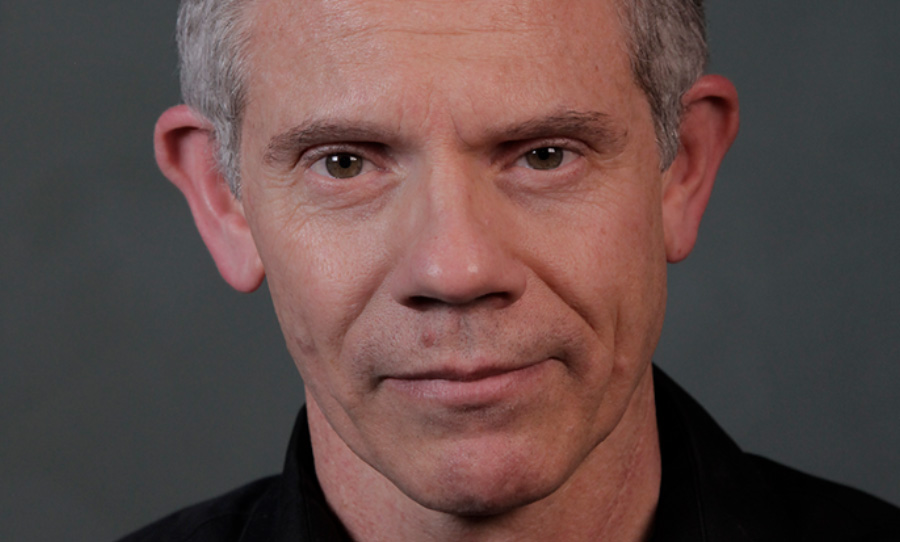Amongst the many businesses hurt by COVID-19 restrictions, education has been a particularly heavy talking point in the media. From primary schools to the country’s biggest universities, educators have responded with varying degrees of effectiveness to the temporary world order, making sure to keep the lights on and most importantly, keeping their students engaged.
One of the country’s leading creative industry educators, The Australian, Film, Television, and Radio School (AFTRS), has undertaken a particularly swift and impressive approach to socially distant learning. With a great number of their courses now online, they’re actually finding that an incredible amount of students are using their time in quarantine for self-improvement and learning.
We spoke to Wendy Gray, Head of Programs at AFTRS, about how they’re leading the charge on online education.

The delivery of quality education has never been tougher, but people’s appetite for learning is at an all-time high. Find out how AFTRS have adapted to COVID-19.
HAPPY: First of all, congratulations on getting so many of the courses online. Are the offerings in a place that you’re happy with now, or is there more work to be done?
WENDY: Not by a long shot – we are busily developing a lot of new online courses across a range of disciplines, and also converting some of the courses we usually run completely or partially on campus, to now be offered 100% online.
HAPPY: What were some of the earliest challenges AFTRS ran into?
WENDY: Time frame is always a challenge when developing a new product of any kind! We are lucky because we’ve been running online courses for over 10 years, so we already had infrastructure and know-how. Pivoting your entire short course offering to online is certainly a challenge, but we approached it by analysing which courses will work best online, and which we will keep as on-campus only courses.
HAPPY: Is every course doable online in some way, or are there some that will always rely on practical or hands-on methods?
WENDY: There is no doubt that some courses in the production/filmmaking area are quite tricky to deliver online – where you are teaching someone to use a piece of equipment for example, or where you are trying to replicate an on-set experience. Having said that there are ways around every challenge, but for us it’s a matter of deciding where we best concentrate our resources and time. Also, we need to take into account that different people have different learning needs. Some people relish online learning, others greatly prefer to be in a face-to-face environment, so we need to make sure we are catering for both.
HAPPY: What has the response from students and teachers been like for the online courses?
WENDY: We’ve been blown away by the response – many of our courses have sold out, and there’s a real thirst for learning at the moment! We are having to program online courses a lot more regularly than we would have pre-COVID. As I said, we’ve been teaching online courses for more than 10 years, and we’ve had a lot of happy students go through those courses. Generally, students who have a level of self-discipline really, really enjoy online learning because some (or all) of it is self-directed.
Others prefer having to come to a specific place at a specific time to focus on the learning. The big plus for online learners is that they can review material repeatedly and choose when they are going to participate in the learning – so at a time and place that they can concentrate, without the distractions of having to commute to a campus or be distracted by other people in the classroom. For some of our lecturers and students who haven’t participated in online education, it’s been a learning curve – but I’m impressed at how we’ve all embraced the new technology. Let’s face it, just about everybody has had to do a Zoom meeting or class or seminar for something in the last couple of months!
HAPPY: Have any unexpected benefits come out of moving some courses online? Something you wouldn’t have found out if they remained in-person?
WENDY: The wonderful thing for us is that it’s given more people outside Sydney a chance to participate in our courses – and I’ve had a number of people thank us for taking courses online for this very reason.
HAPPY: What do you think are some key lessons AFTRS and other schools will learn from this pandemic?
WENDY: I think we’ve learnt that change is good for us, and that in general as an organisation we’ve met the challenge well. For all education providers it’s highlighted that accessibility needs to be built into all our future education strategies. As mentioned above there are some skills that are tricky to teach online and some activities that need teams to gather and this is our greatest challenge both in terms of education and the screen and broadcast sector employment activity. We’ll be investigating ways to both make content, and TEACH the making of content, using new technology – for example I can see virtual reality production and virtual reality teaching experiences becoming popular.
HAPPY: Do you think online-only courses will continue to play a strong role in education when distancing regulations ease up?
WENDY: Absolutely. We’ve taken the opportunity to put together a whole new Online Course Strategy, and we’ll be rolling out a new program over the next 18 months. As part of that we are currently doing a trial partnership with Futurelearn. In terms of our full-time courses, we’ve identified some real plusses for online learning for those students so I’m confident it’s not going away.
HAPPY: Lastly, tell us about some of the great courses coming up!
WENDY: Well we’ve converted three of our Industry Certificates to be delivered 100% online – Digital Producer, Content Creation and Production Accounting. These are 12-14 week long, part-time courses that really dig down into the skills required in these areas. They are our longest current online courses.
We have a number of courses we’ve been running online for quite a while that are between 5 and 10 weeks long; Screenwriting for Film, Writing a TV Series, Podcasting Fundamentals, Mobile Content Creation, The Director’s Journey, and Radio Fundamentals are all courses taught by Industry Professionals. And now we’ve converted some of our shorter courses to 100% online; Budgeting Fundamentals, Storytelling for Business, Presentation Skills, Intro to Producing to name a few.
We’ve also got a great series of Professional Development Seminars – Short , Sharp and Immediately Useful – that were originally planned to be delivered only on campus, but are now being delivered online. The next one is with Brand expert Peter Drinkwater on Audience, Strategy and Building Your Brand. These seminars were developed in response to the industry survey we conducted last year which asked for short, bit-sized chunks of professional development, focussing on management and leadership challenges within the creative industries.
You can find links to all AFTRS online courses here.



